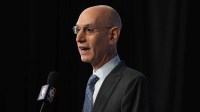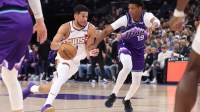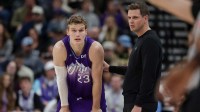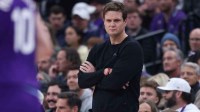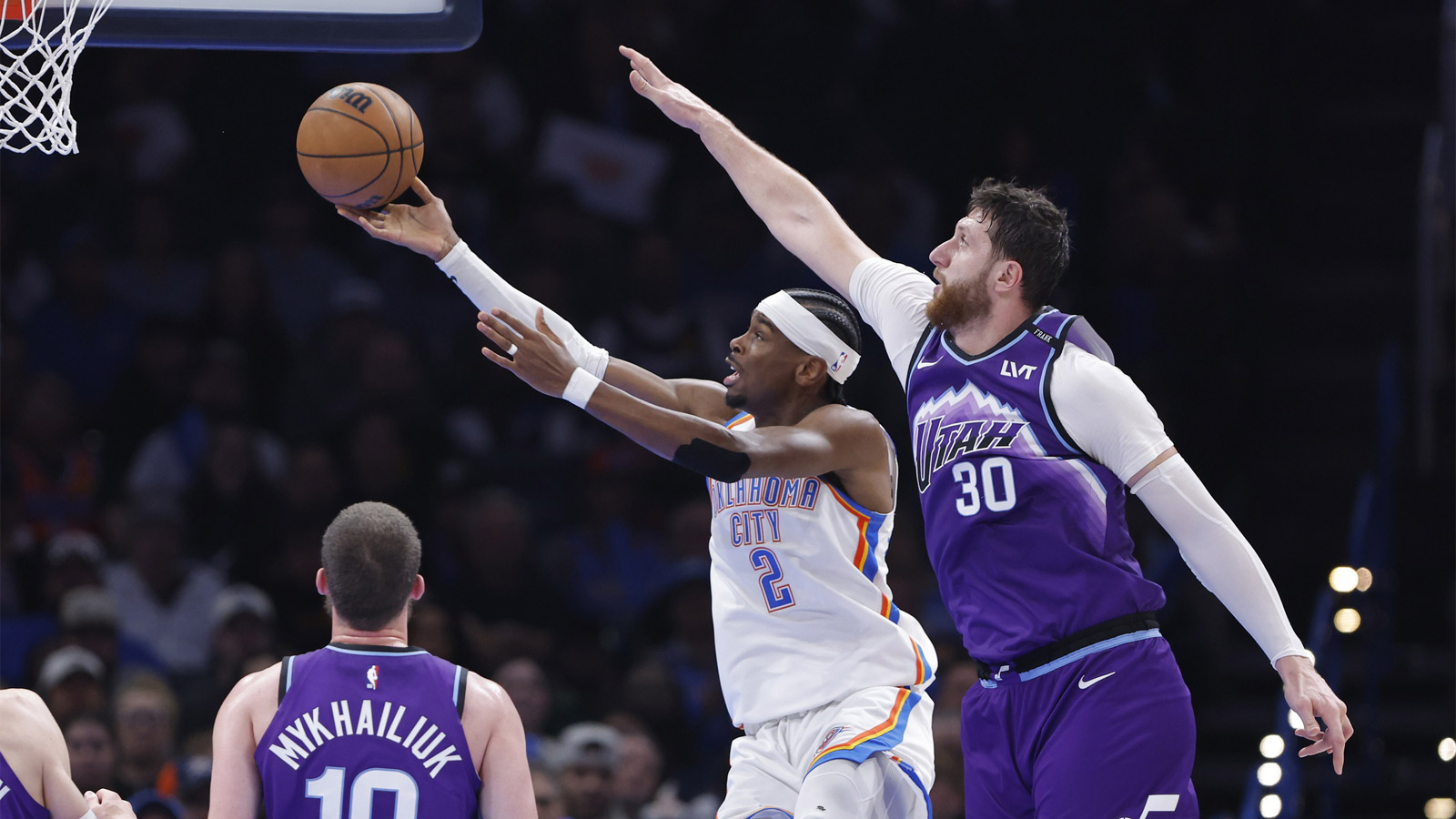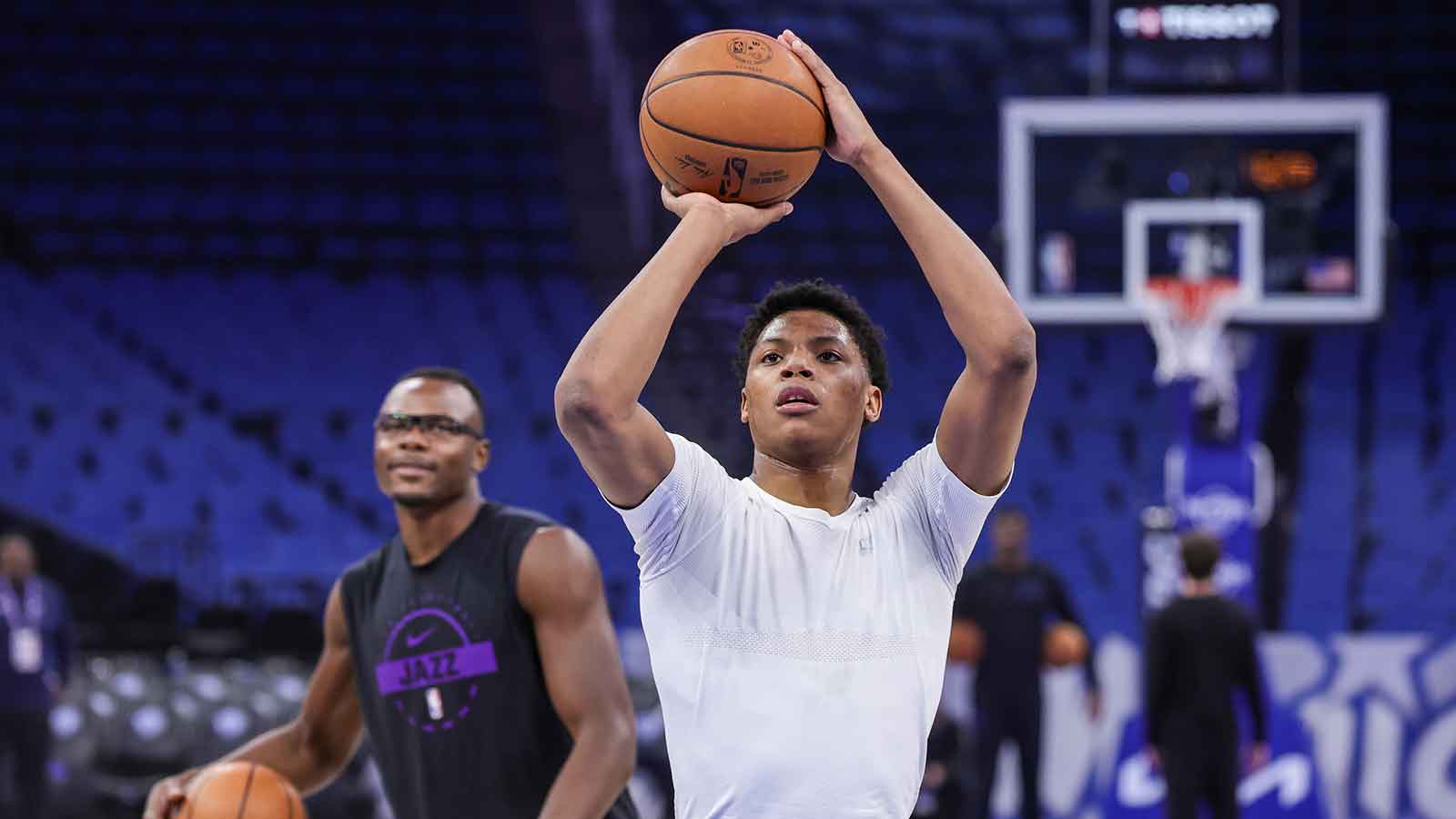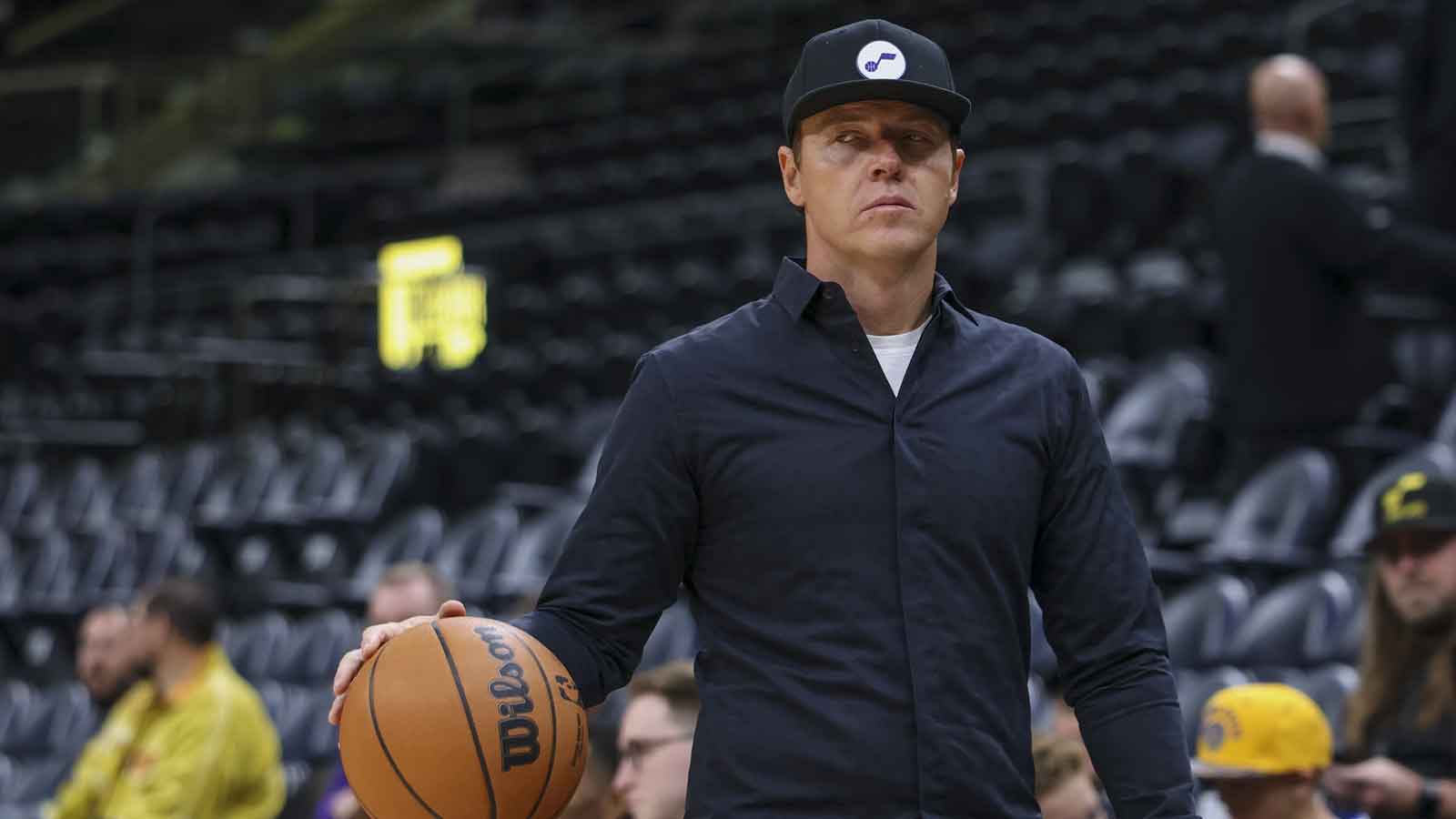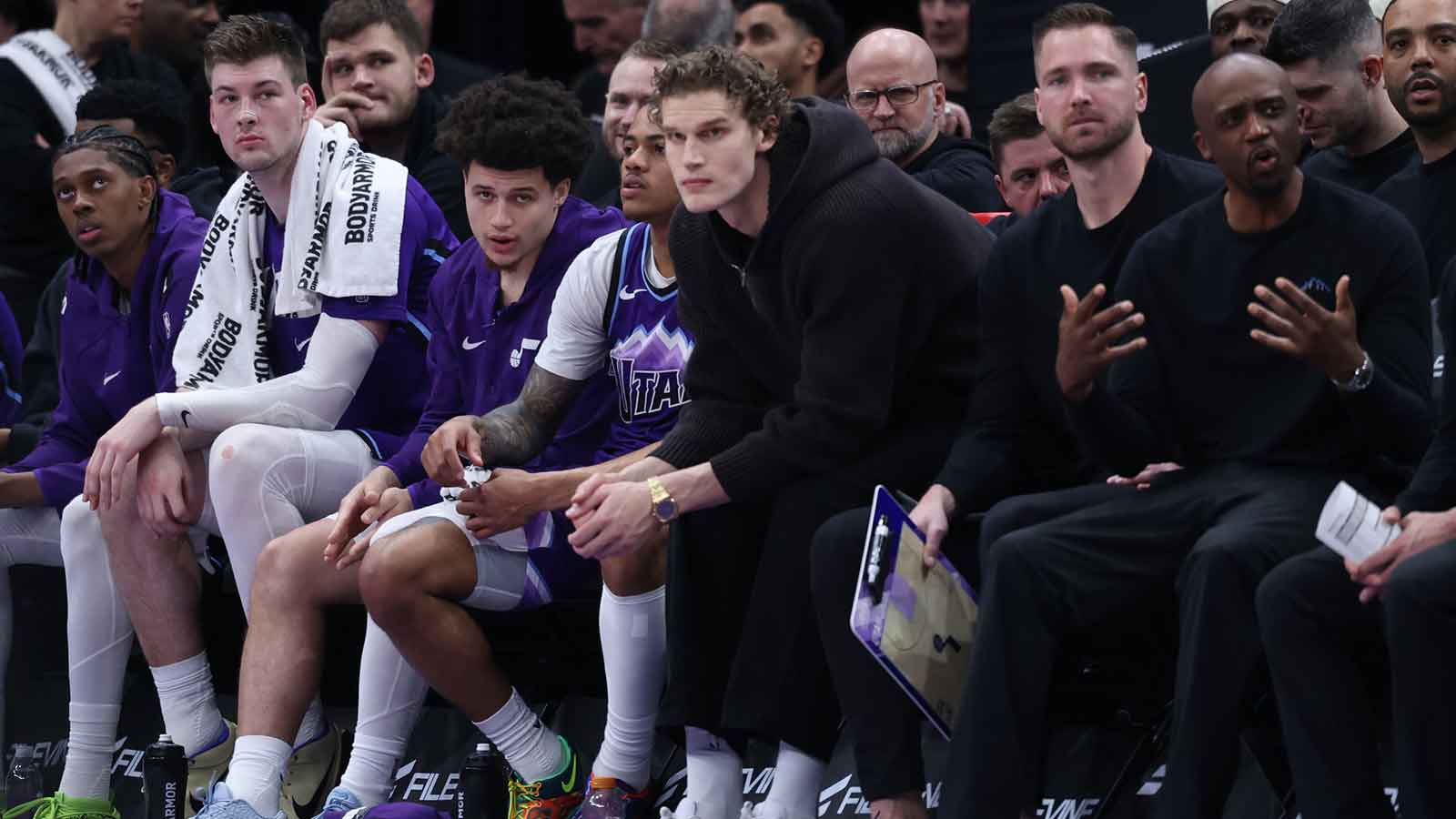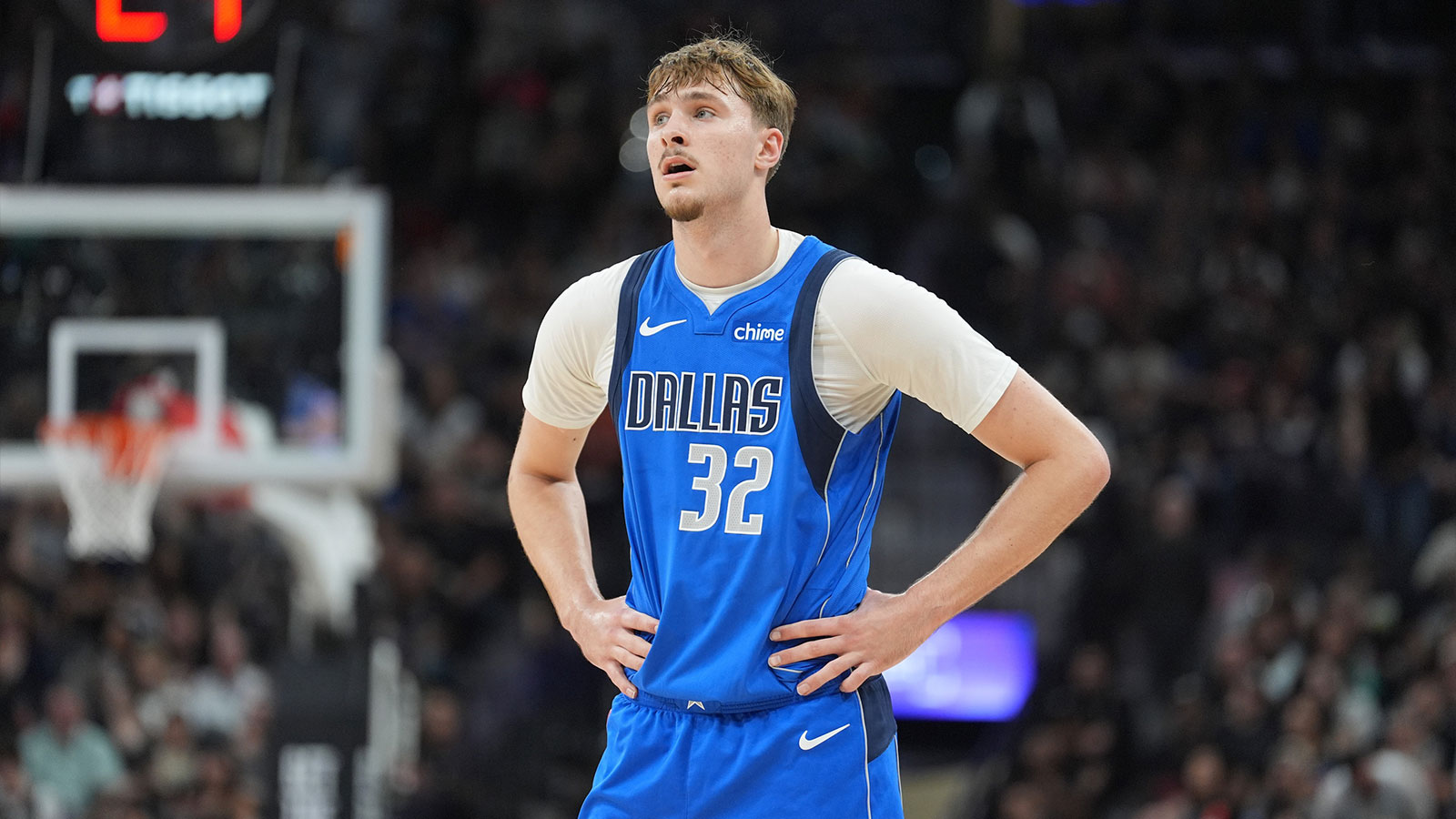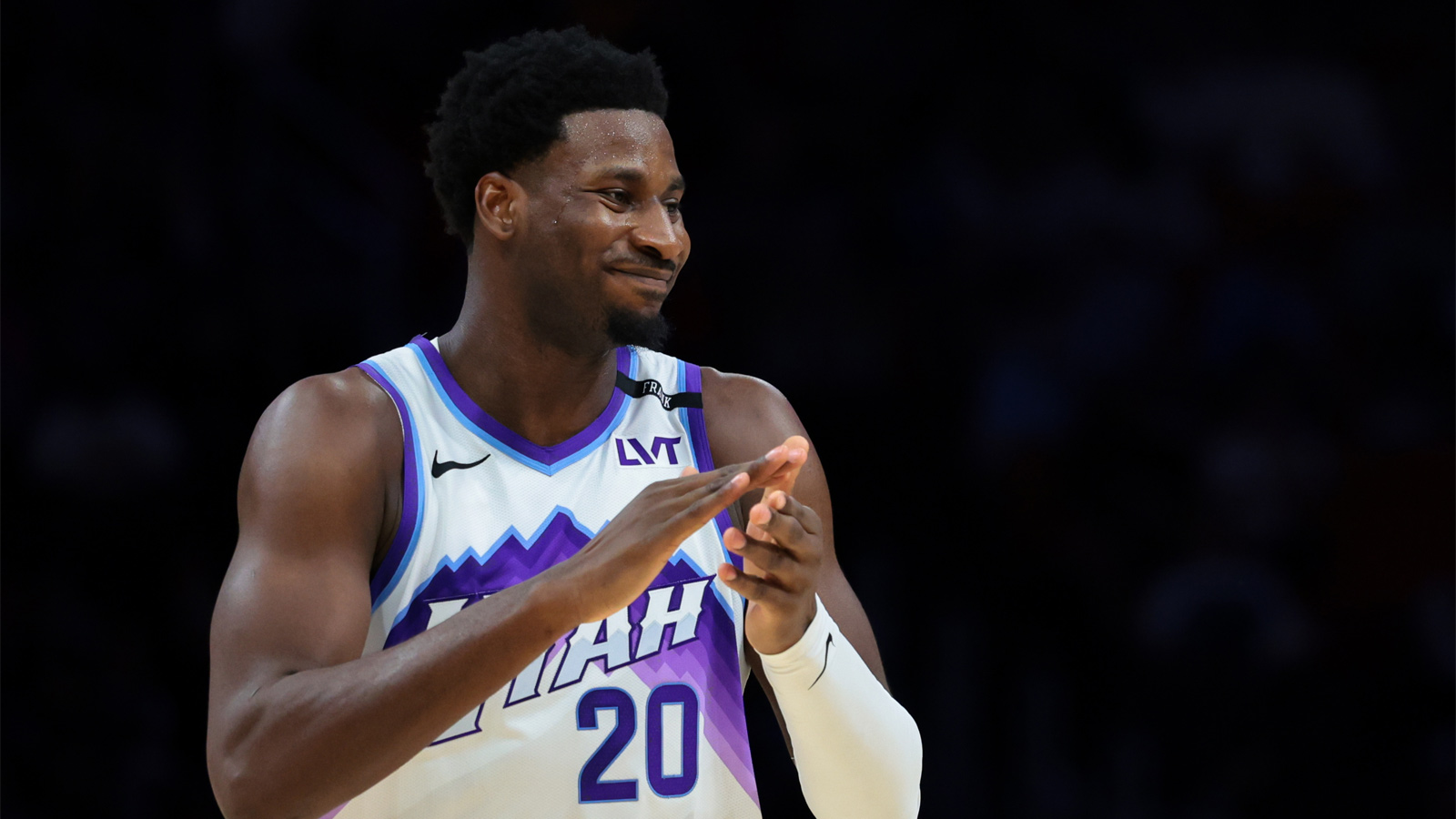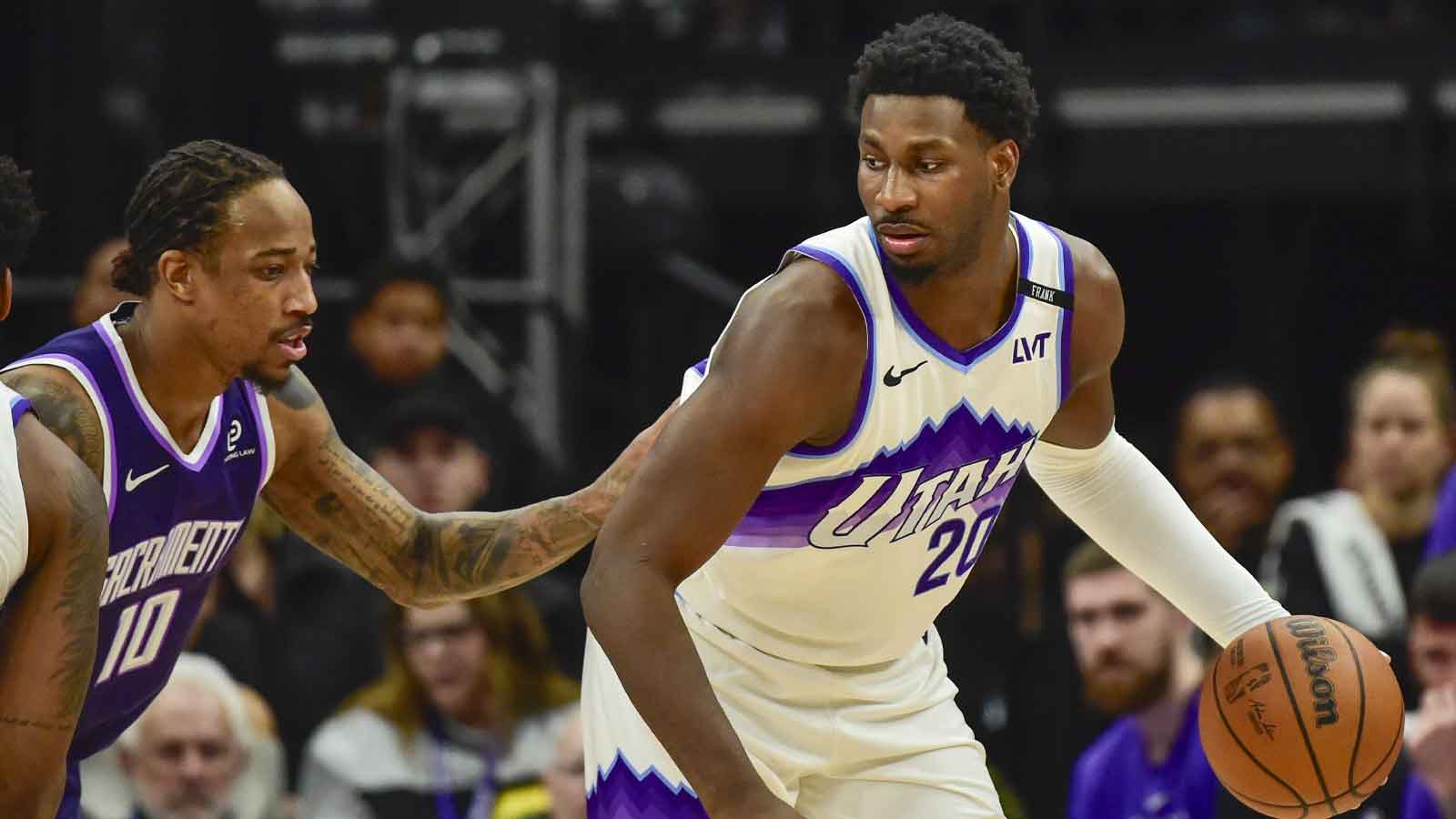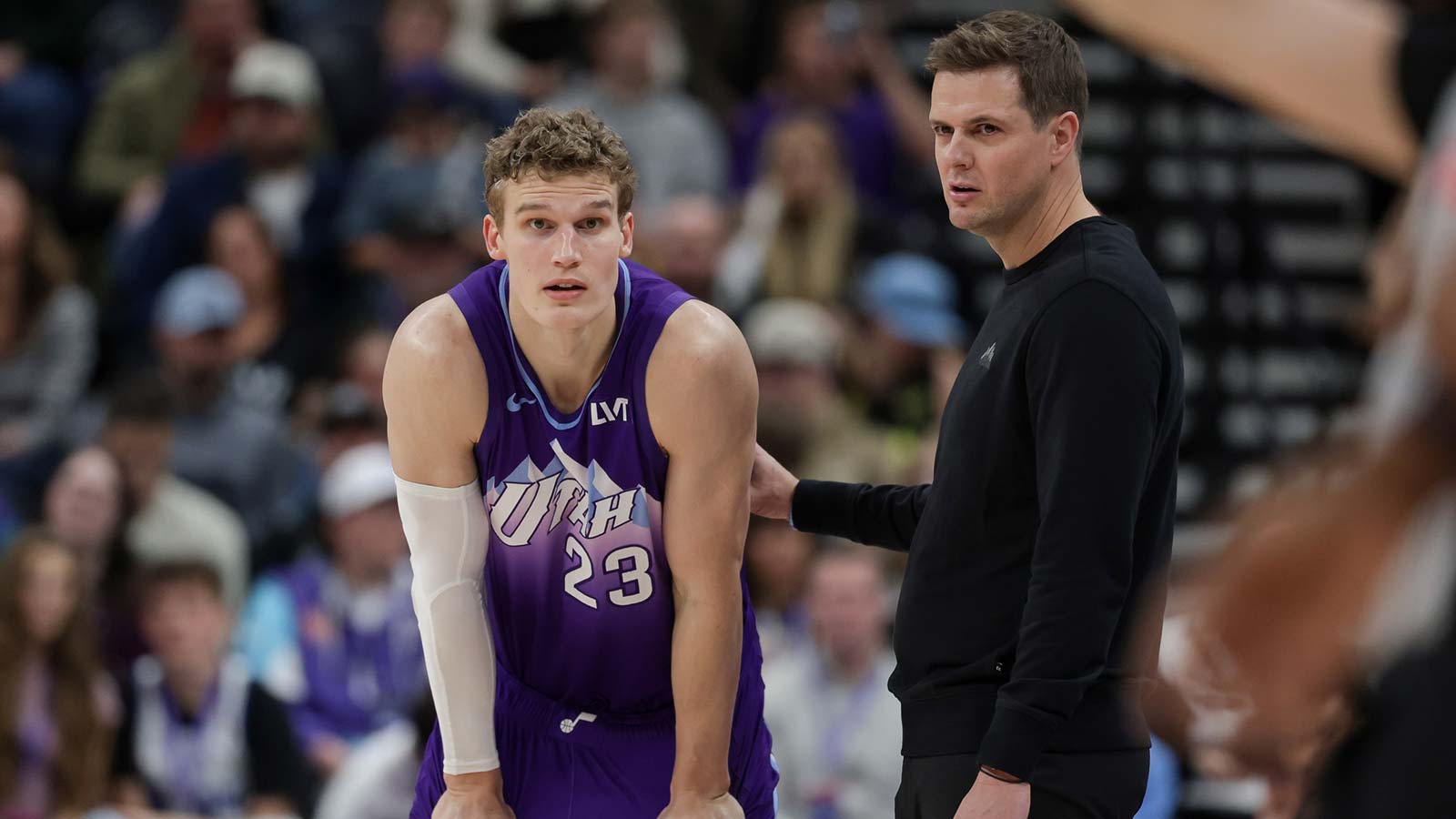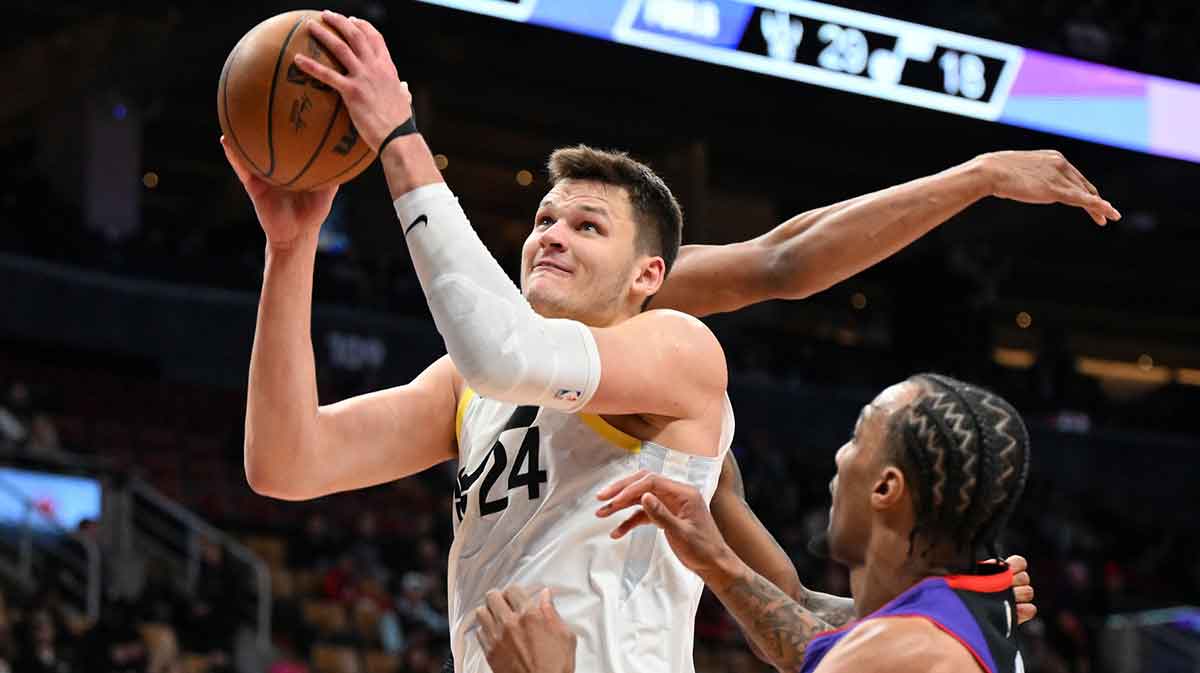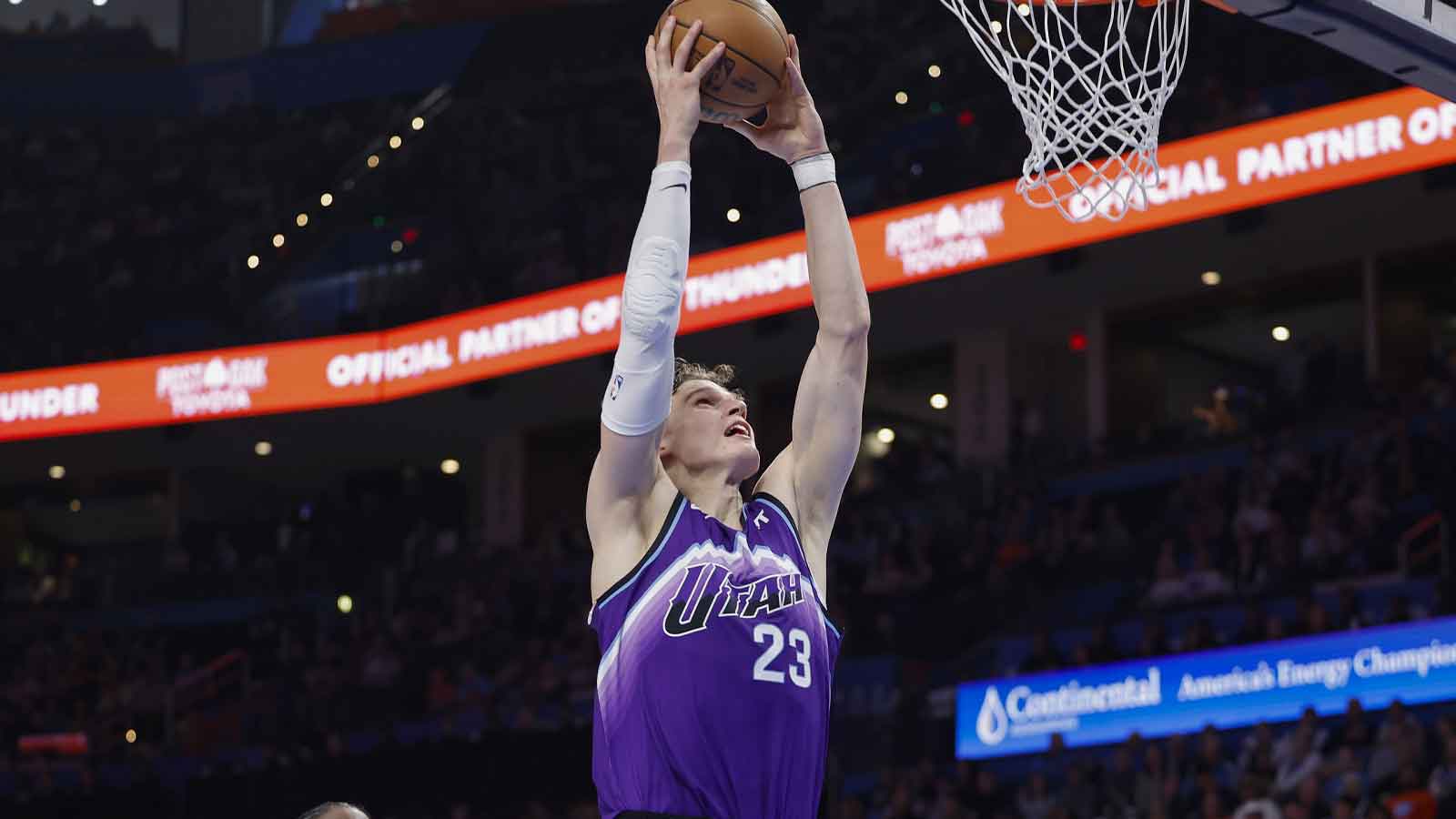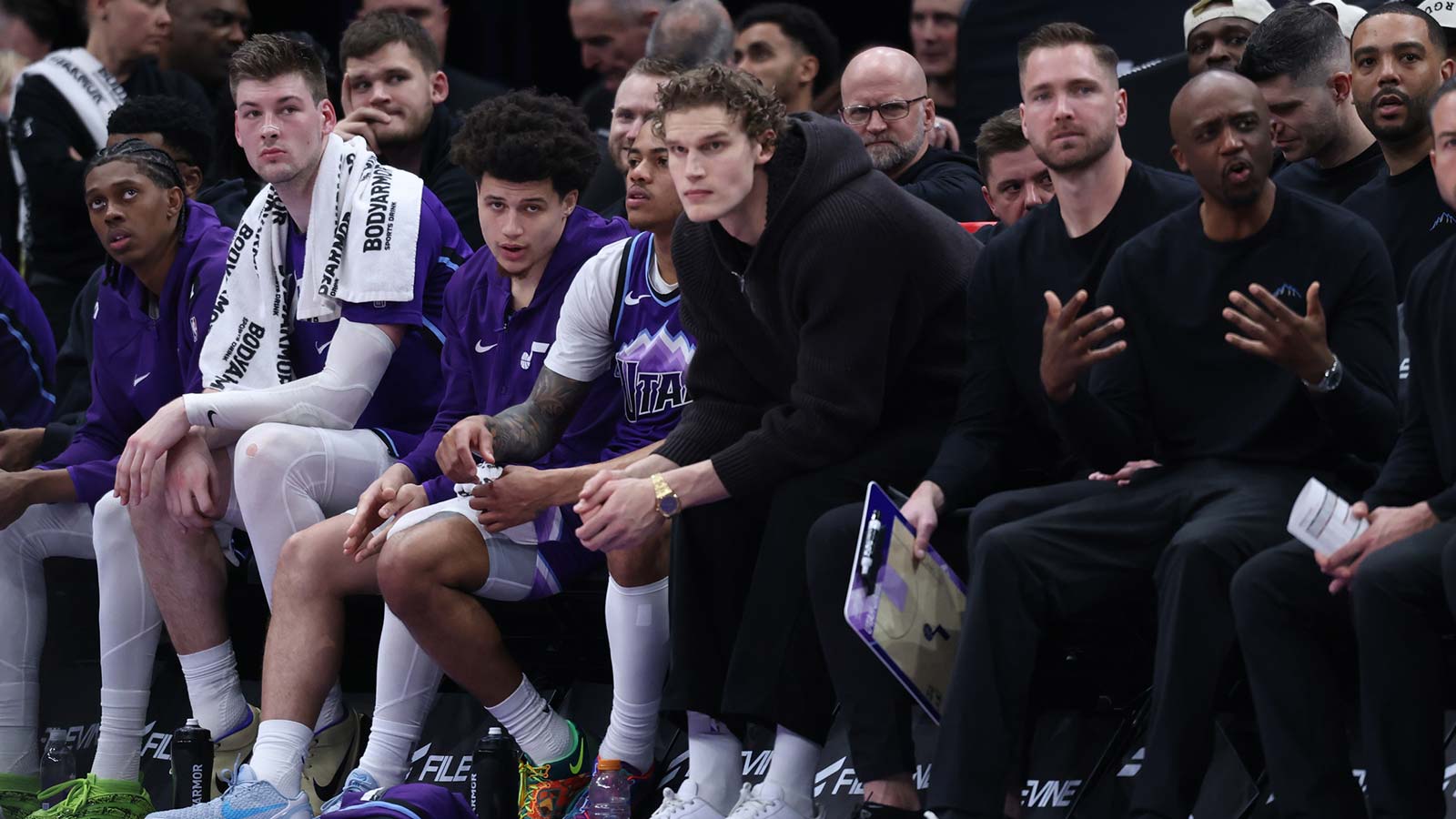The Utah Jazz put together a spirited comeback effort in fourth quarter but came up just short and lost to the Miami Heat, 118-115, on Saturday night. The Jazz-Heat showdown definitely lived up to the hype as the game went down the wire with Utah mounting a furious rally down the stretch after Miami looked like it was well on its way to an easy victory. The Jazz slowly inched their way back from 19 points down midway through the fourth and managed to cut the lead to as low as one.
Utah also had its chance to send the game into overtime, but Donovan Mitchell came up short on his game-tying attempt from beyond the arc. Mitchell's 37 points almost powered the Jazz to the come-from-behind win and made some key baskets during their run to give them a chance to win. Unfortunately, it wasn't enough to get Utah solo first in the West and instead fell to second behind the Golden State Warriors.
While there are some positives to draw from this defeat, there's a reason why the Jazz even needed to exert that much effort and energy just to give themselves a chance to win. Miami played its A-game and pretty much had the control for a good chunk of the evening. Utah, meanwhile, had their lapses defensively and did not look sharp with their rotations. With that, here are four takeaways from Utah's loss to Miami.
Jazz Takeaways After Loss To Heat
1. Jazz defense wasn't in top form
The Jazz entered the game at no. 2 in terms of opponent's field goal percentage, allowing just 41.2 percent shooting every night. On Saturday, they allowed Miami to shoot 60.3 percent from the field and 52.4 percent from long distance. The Heat made it a point to push the tempo and get into their offense quicker, generating easy points in transition with Utah a step slower.
They also took advantage of a Jazz team that was rather sluggish, and had several uncontested shots in the paint, as well as second chance points. Tyler Herro also got hot as a result of Utah not stepping up on their pick-and-roll defense and allowing him to just rise and fire. Give someone like Herro some confidence and rhythm, and he'll start making you pay, as he did with 14 points in the fourth quarter.
Had the Jazz given a bit more resistance throughout the game and not just the final five minutes, perhaps this could have been a different outcome.
2. Valiant late-game effort shows Jazz won't go down without a fight
As disappointing as their effort was through three and a half quarters, Utah did not mail it in when they fell by 19 points with less than six minutes remaining in the game. The Jazz finally decided to lock in defensively and forced several Heat turnovers during that stretch. Moreover, for a hot-shooting team, they found their groove offensively as a result of great ball movement. Utah generated plenty of open shots from both beyond the arc and at the basket by penetrating and breaking the paint.
3. Game-tying shot could have been better
As great were the shots they generated throughout their comeback, Utah could have definitely done the same for their game-tying play. Down by 3 with 10 seconds remaining and the ball, Donovan Mitchell hoisted up a contested catch-and-shoot triple that came up short off the iron. Give Jimmy Butler credit for the good contest. Utah probably opted to take the quick three to prevent Miami from fouling and play the free throw game.
Nonetheless, with the amount of shooting Utah had on the floor, Jazz coach Quin Snyder could have drawn up a play to free up at least one of his snipers, especially with all the attention on Mitchell.
4. Hassan Whiteside played over Rudy Gobert amidst their fourth quarter rally
The Jazz made their furious rally in the fourth quarter with All-Star big man Rudy Gobert riding the bench. Instead, coach Quin Snyder opted to go with former Heat center Hassan Whiteside, who was a plus-17 in his 19 minutes on the floor, to man the paint throughout the run.
Gobert wasn't in foul trouble, which made it puzzling for viewers if they tuned in during the last five minutes of the game. But throughout the night, the 3-time Defensive Player of the Year, who was a minus-20, just wasn't himself. Miami did a great job keeping him out of his comfort zone and this forced the hand of Snyder to go in a different direction with his defensive anchor all out of sorts.
Nonetheless, it's safe to assume that this likely won't be the norm for Utah's closing lineups throughout the season.




